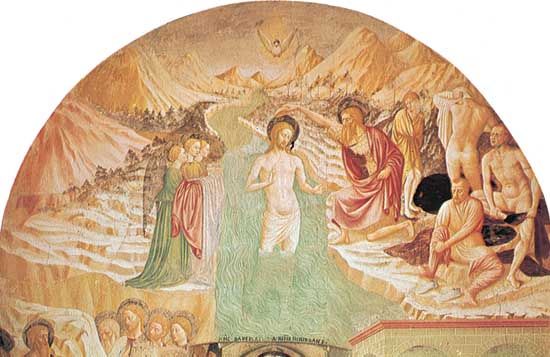St. Felix I is a significant figure in Christian mythology, known primarily as a pope who served during the late second century. His reign is marked by a series of challenges and developments that shaped the early Christian church. One of the key aspects of St. Felix I’s legacy is his role in defining the relationship between the church and the state during a time when Christians faced persecution. His contributions to the church’s structure and his efforts to promote unity among Christians have made him a revered figure in Christian history.
The Life of St. Felix I
St. Felix I was born in Rome, and very little is known about his early life. Historians believe he was born around the year 230 AD. His upbringing in the heart of the Roman Empire played a crucial role in shaping his future as a leader in the Christian community. His early exposure to the diverse cultures and religions of Rome may have influenced his approach to leadership within the church. He was elected pope around the year 269 AD, succeeding Pope Dionysius, and began his papacy during a time of relative peace for Christians.
 St. Felix De Valois
St. Felix De ValoisDuring his time as pope, St. Felix I faced the challenges of maintaining the faith of Christians in a rapidly changing environment. The Roman Empire was experiencing significant social and political changes, which often resulted in persecution for Christians. St. Felix I worked tirelessly to strengthen the faith of the Christian community, encouraging believers to remain steadfast in their beliefs despite the difficulties they faced. His leadership was characterized by a strong commitment to the principles of Christianity, which helped to unify the church during this tumultuous period.
Contributions to the Church
One of the most notable contributions of St. Felix I to the church was his emphasis on the importance of unity among Christians. He recognized that the early church was fragmented, with various sects and interpretations of Christian doctrine emerging. To address this issue, he convened several councils to discuss and establish core beliefs that would unify the church. These councils were instrumental in creating a sense of shared identity among Christians, which was essential for the survival of the faith in a hostile environment.
 St. Felicity Of Carthage
St. Felicity Of CarthageSt. Felix I also played a vital role in the development of the church’s hierarchy. He established a clear structure of leadership within the church, which helped to ensure that the teachings of Christianity were disseminated consistently across different regions. This hierarchical structure allowed for greater coordination and support among Christian communities, making it easier for them to resist external pressures and maintain their faith. His efforts in this area laid the groundwork for the future organization of the Catholic Church.
St. Felix I and the Martyrs
During his papacy, St. Felix I was particularly concerned with the treatment of Christian martyrs. Many Christians were being persecuted for their beliefs, and St. Felix I took it upon himself to advocate for their rights and well-being. He believed that the sacrifices made by these martyrs were crucial to the faith and that their stories should be honored and remembered. To this end, he promoted the veneration of martyrs, establishing feast days and rituals that celebrated their lives and sacrifices.
The stories of the martyrs became an essential part of the Christian tradition, and St. Felix I’s efforts to commemorate them helped to inspire future generations of Christians. By emphasizing the importance of martyrdom, he encouraged believers to view their faith as a source of strength in the face of adversity. This focus on martyrdom also served to bolster the resolve of Christians who were facing persecution, reminding them that they were part of a larger narrative of faith and sacrifice.
 St. Fabiola
St. FabiolaSt. Felix I and the Expansion of Christianity
St. Felix I’s papacy coincided with a period of significant expansion for Christianity. As the faith spread throughout the Roman Empire, it encountered various cultures and belief systems. St. Felix I understood the importance of engaging with these different cultures to promote the teachings of Christ. He encouraged missionaries to travel to new regions, sharing the message of Christianity with diverse populations. This approach helped to establish Christianity as a global religion, transcending cultural boundaries.
Additionally, St. Felix I supported the translation of Christian texts into various languages, making the teachings of Christianity accessible to a broader audience. He believed that language should not be a barrier to faith and that everyone should have the opportunity to learn about the message of Christ. This commitment to translation and accessibility contributed to the rapid growth of Christianity during his papacy.
St. Felix I’s Legacy
The legacy of St. Felix I is profound and far-reaching. His contributions to the early church set the stage for the future development of Christianity as a major world religion. His emphasis on unity, organization, and the veneration of martyrs has had a lasting impact on Christian traditions. Today, many of the principles he championed continue to resonate within the Catholic Church and other Christian denominations.
Moreover, St. Felix I is remembered as a symbol of resilience in the face of adversity. His leadership during a time of persecution serves as an inspiration for Christians facing challenges in their own lives. The stories of his efforts to promote unity and support martyrs remind believers of the importance of standing firm in their faith, regardless of the circumstances they may encounter.
Feast Day and Recognition
The feast day of St. Felix I is celebrated on January 30th in the Catholic Church. This day is an opportunity for Christians to reflect on his life and contributions to the faith. During this celebration, various rituals and prayers are offered in his honor, and many churches hold special services to commemorate his legacy. The recognition of St. Felix I as a saint highlights the importance of his role in the history of Christianity.
In addition to his feast day, St. Felix I is often depicted in religious art, showcasing his significance in Christian mythology. Artists have portrayed him in various forms, often emphasizing his papal attire and symbols of faith. These artistic representations serve as a reminder of his contributions to the church and the enduring impact of his leadership.
St. Felix I in Historical Context
To fully appreciate the significance of St. Felix I, it is essential to understand the historical context in which he lived. The late second century was a tumultuous time for Christians, marked by periods of intense persecution. Roman emperors viewed Christians with suspicion, often associating them with political dissent. This atmosphere of fear and hostility made St. Felix I’s leadership even more critical as he sought to protect and guide the Christian community.
During his papacy, the church was also grappling with internal conflicts. Different theological interpretations were emerging, leading to divisions within the community. St. Felix I’s commitment to unity was crucial in addressing these challenges. By convening councils and promoting dialogue, he helped to mitigate conflicts and foster a sense of solidarity among Christians. His ability to navigate these complex dynamics speaks to his skill as a leader and his deep understanding of the needs of the church.
Theological Contributions of St. Felix I
St. Felix I’s theological contributions were significant in shaping early Christian thought. He emphasized the importance of the resurrection of Christ, a central tenet of Christian belief. By promoting the resurrection as a foundational aspect of faith, he helped to strengthen the hope and resilience of Christians during difficult times. His teachings on the resurrection provided believers with a sense of purpose and assurance, reinforcing the idea that suffering could lead to eternal life.
Furthermore, St. Felix I was a proponent of the doctrine of the Trinity, emphasizing the relationship between the Father, Son, and Holy Spirit. His teachings on this complex theological concept laid the groundwork for future discussions and debates within the church. By articulating these ideas clearly, he contributed to the development of a more cohesive understanding of Christian doctrine, which would be crucial for the church’s growth and unity.
St. Felix I’s Impact on Future Popes
The impact of St. Felix I extended beyond his own papacy, influencing future leaders of the church. His emphasis on unity and organization served as a model for subsequent popes, who looked to his example when addressing challenges within the church. The principles he established regarding the veneration of martyrs and the importance of community have been echoed throughout church history, shaping the way future popes approached their roles.
Moreover, St. Felix I’s commitment to theological clarity set a standard for future papal teachings. His ability to articulate complex ideas in a way that was accessible to the faithful became a hallmark of effective leadership within the church. As future popes sought to address theological disputes and guide their communities, they often drew inspiration from the teachings and practices established by St. Felix I.
St. Felix I in Contemporary Christianity
Today, the legacy of St. Felix I continues to resonate within contemporary Christianity. His teachings on unity, resilience, and the importance of community remain relevant as Christians navigate the challenges of modern life. Many denominations look to his example as they seek to foster a sense of belonging among believers and promote a shared commitment to their faith.
In addition, the emphasis on the veneration of martyrs has been revitalized in many Christian communities. The stories of those who have sacrificed their lives for their faith serve as powerful reminders of the strength of belief. Churches often celebrate the lives of martyrs, drawing inspiration from their courage and commitment to their convictions. This practice can be traced back to the efforts of St. Felix I, who recognized the importance of honoring those who had suffered for their faith.
St. Felix I’s Influence on Ecumenism
St. Felix I’s legacy also extends to the realm of ecumenism, which seeks to promote unity among different Christian denominations. His emphasis on the importance of unity among Christians serves as a guiding principle for contemporary ecumenical efforts. Many churches today strive to foster dialogue and collaboration among different denominations, recognizing that a united front can strengthen the Christian witness in the world.
Furthermore, St. Felix I’s commitment to addressing theological differences with respect and understanding has become a model for ecumenical discussions. By promoting a spirit of openness and dialogue, he paved the way for future efforts to bridge divides among Christians. His approach serves as a reminder that, despite differences in beliefs and practices, there is a shared commitment to the teachings of Christ that can unite believers across denominations.
The life and contributions of St. Felix I are a testament to the enduring power of faith and leadership within the Christian tradition. His emphasis on unity, resilience, and the veneration of martyrs has left a lasting mark on the church, shaping the way Christians understand and practice their faith. As believers continue to navigate the complexities of modern life, the legacy of St. Felix I serves as a source of inspiration and guidance, reminding them of the importance of standing firm in their convictions and supporting one another in their journeys of faith.
